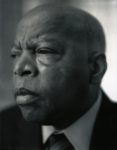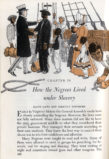 Featured – Removing monuments is the easy part. We must make America a real democracy. By Rev William Barber and Rev Bernice King / The Guardian
Featured – Removing monuments is the easy part. We must make America a real democracy. By Rev William Barber and Rev Bernice King / The Guardian
While the divisive politics of Trumpism may be the last gasp of the Southern Strategy, the question of whether America can do the work of becoming a genuine democracy still remains. Removing monuments to the lie of white supremacy is an important step, but a shared future depends on redistributing power and resources so that every American, no matter their race, income, geography or immigration status, has access to healthcare, public education, affordable housing, a living wage, clean water and a livable planet. Read more
Related: Obama warns that Trump’s actions threaten US democracy. By Stephen Collinson / CNN
Related: America is on a brink like none since the Civil War. By Peniel E. Joseph / CNN
 Together, You Can Redeem the Soul of Our Nation. By John Lewis / NYT
Together, You Can Redeem the Soul of Our Nation. By John Lewis / NYT
While my time here has now come to an end, I want you to know that in the last days and hours of my life you inspired me. You filled me with hope about the next chapter of the great American story when you used your power to make a difference in our society. Millions of people motivated simply by human compassion laid down the burdens of division. Around the country and the world you set aside race, class, age, language and nationality to demand respect for human dignity. Read more
Related: John Lewis Believed America Would Survive Trump. By Michelle Goldberg / NYT
Related: John Lewis’s funeral was a balm to the soul of America. By Kathleen Parker / Wash Post
 A Half-Century After Wallace, Trump Echoes the Politics of Division. By Peter Baker / NYT
A Half-Century After Wallace, Trump Echoes the Politics of Division. By Peter Baker / NYT
George Wallace’s speeches and interviews from his 1968 campaign feature language and appeals that sound familiar again as the “law and order” president sends federal forces into the streets. Read more
 The Right’s Increasingly Unhinged Fight Against Black Lives Matter. By Jake Bittle / New Republic
The Right’s Increasingly Unhinged Fight Against Black Lives Matter. By Jake Bittle / New Republic
In mid-July, former New York City Mayor Rudy Giuliani took to his podcast, Common Sense, to warn listeners that Black Lives Matter would abolish “a government based on free enterprise” as well as “really, your right to have a religion.” If the “Marxist” activists took power, he said, they would use reparations to “get, like, a lifetime salary.” That same day, Glenn Beck spent an hour laying out BLM’s “Plot to DESTROY the Family.” Tucker Carlson was even more direct: The protesters “want segregation,” he said. “You cool with that?” Read more
 Why the Black Lives Matter movement should claim the 14th Amendment. By Brando Simeo Starkey / The Undefeated
Why the Black Lives Matter movement should claim the 14th Amendment. By Brando Simeo Starkey / The Undefeated
The movement, though, must reach for a more ambitious objective: control of the Constitution. Black lives matter not just on moral grounds. The 14th Amendment provides that, “No state shall … deny to any person within its jurisdiction the equal protection of the laws.” Black lives matter because our Constitution — because the equal protection clause — demands it. Read more
 San Francisco Proposes To Shift $120 Million From Police To Tackle Racial Disparities. By Maureen Pao / NPR
San Francisco Proposes To Shift $120 Million From Police To Tackle Racial Disparities. By Maureen Pao / NPR
San Francisco Mayor London Breed plans to divert $120 million from law enforcement to efforts that address inequities faced by the city’s Black community in housing, health, economic opportunity and education. The proposal comes two months after, as Breed put it during Friday’s announcement, “the murder of George Floyd shook this country to its core, in a way that I have never seen before,” stoking ongoing protest against police brutality and racial injustice. Read more
 Is former New Orleans Mayor Mitch Landrieu a leader for this moment of racial reckoning? By Janell Ross / NBC News
Is former New Orleans Mayor Mitch Landrieu a leader for this moment of racial reckoning? By Janell Ross / NBC News
Mitch Landrieu catapulted from progressive philanthropy darling to household name when he ordered the removal of four Confederate monuments in New Orleans while serving as mayor in 2017. Now, he’s organizing public conversations about race and opportunity while creating a program to help produce elected officials willing to prod their communities toward equity. Read more
 The lies our textbooks told my generation of Virginians about slavery. By Bennett Minton / Wash Post
The lies our textbooks told my generation of Virginians about slavery. By Bennett Minton / Wash Post
A series of textbooks written for the fourth, seventh and 11th grades taught a generation of Virginians our state’s history. Chapter 29 of the seventh-grade edition, titled “How the Negroes Lived Under Slavery,” included these sentences: “A feeling of strong affection existed between masters and slaves in a majority of Virginia homes.” The masters “knew the best way to control their slaves was to win their confidence and affection.” Enslaved people “went visiting at night and sometimes owned guns and other weapons.” Read more
 Asian Americans face dual challenges: Surging unemployment and racism. By Caitlin Yoshiko Kandil and Kimmy Yam / NBC News
Asian Americans face dual challenges: Surging unemployment and racism. By Caitlin Yoshiko Kandil and Kimmy Yam / NBC News
A new study from UCLA reports that since the start of the pandemic, 83 percent of the Asian American labor force with high school degrees or lower has filed unemployment insurance claims in California — the state with the highest population of Asian Americans — compared to 37 percent of the rest of the state’s labor force with the same level of education. At the same time, new research shows that discrimination against Asian Americans is surging. Read more
 The Coronavirus Pandemic Has Intensified Systemic Economic Racism Against Black Americans. By Steven Greenhouse / The New Yorker
The Coronavirus Pandemic Has Intensified Systemic Economic Racism Against Black Americans. By Steven Greenhouse / The New Yorker
The coronavirus pandemic has highlighted America’s enduring racial disparities, which are fuelled by decades of unequal treatment, unequal opportunity, and structural barriers like job discrimination and poor schools. Blacks have been infected with covid-19 at three times the rate of whites, and their death rate is twice that of whites. (The same is true for Hispanics.) Read more
 Will Herman Cain’s Death Change Republican Views on the Virus and Masks? By Jeremy W. Peters / NYT
Will Herman Cain’s Death Change Republican Views on the Virus and Masks? By Jeremy W. Peters / NYT
The death of Herman Cain, attributed to the coronavirus, has made Republicans and President Trump face the reality of the pandemic as it hit closer to home than ever before, claiming a prominent conservative ally whose frequently dismissive attitude about taking the threat seriously reflected the hands-off inconsistency of party leaders. Read more
 Virus-Driven Push to Release Juvenile Detainees Leaves Black Youth Behind. By Erica L. Green / NYT
Virus-Driven Push to Release Juvenile Detainees Leaves Black Youth Behind. By Erica L. Green / NYT
Black youth detained in juvenile justice facilities have been released at a far slower rate than their white peers in response to the coronavirus, according to a new report that also found that the gap in release rates between the two groups had nearly doubled over the course of the pandemic. The report, released this month by the Annie E. Casey Foundation, illustrates one more disparity the coronavirus has exacerbated for Black children, who are disproportionately funneled into the juvenile justice system. Read more
 Princeton professor Eddie Glaude Jr. on James Baldwin’s faith in America. By Sean Illing / Vox
Princeton professor Eddie Glaude Jr. on James Baldwin’s faith in America. By Sean Illing / Vox
No one is raising Baldwin from the dead, but we now have maybe the next best thing: a book about Baldwin from Princeton African American studies professor Eddie Glaude Jr. It’s called Being Again: James Baldwin’s America and Its Urgent Lessons for Our Own. I reached out to Glaude to talk about Baldwin’s conception of America and how it can speak to this moment. This is a long and honest discussion about the contradictions of the American project and why racial progress is both real and illusory at the same time. It is also, I hope, a clarifying exchange on the moral dilemmas at the heart of this challenge. Read more
 MLB Commemorates The 100th Anniversary Of The Negro Leagues. By Doug Tribou / NPR
MLB Commemorates The 100th Anniversary Of The Negro Leagues. By Doug Tribou / NPR
As protests over racial injustice in the U.S. continue, Major League Baseball is honoring an institution created 100 years ago because of its own racist past. The Negro Leagues showcased Black baseball players when they were banned from the big leagues. Read more
Visit our home page for more articles, book/podcast and video favorites. And at the top of this page register your email to receive notification of new editions of Race Inquiry Digest. Click here for earlier Digests.
Use the buttons below to share the Digest in an email, or post to your Facebook, Linkedin or Twitter accounts.